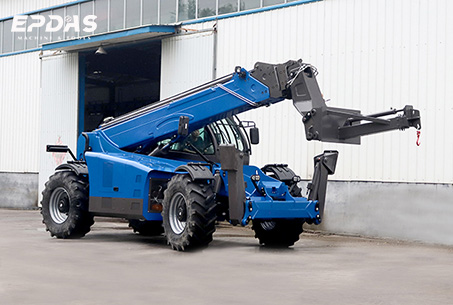The Three Main Types of Concrete Mixers:Batch Mixers,Continuous Mixers,and Self-Loading Mixers.Each Type Has Its Own Specific Applications Depending on the Project’s Size,Location,and Requirements.
The Following Is a Detailed Introduction to the Sanzhong Mixer:
1.Batch Mixers
These Mixers Produce Concrete in Specific, Measured Batches.They Are Commonly Used for Projects That Require Precise Control Over the Mix Proportions.
⑴Types of Batch Mixers:
Drum Mixers:Concrete Is Mixed Inside a Rotating Drum.
⑵Variants Include:
Tilting Drum Mixers:The Drum Tilts to Discharge the Concrete.Suitable for Smaller Batches and Quick Discharge.
Non-Tilting Drum Mixers:Concrete Is Discharged Through a Chute While the Drum Remains Horizontal.
Reversing Drum Mixers:The Drum Rotates in One Direction to Mix and Reverses for Discharge.
Pan Mixers:Feature a Stationary Pan and Rotating Blades for Uniform Mixing,Often Used in Precast Concrete Production.
2.Continuous Mixers
These Mixers Continuously Produce Concrete as Materials Are Fed Into the Machine.The Output Is Constant,Making Them Ideal for Large-Scale Projects Like Roads and Bridges.They Do Not Stop Between Batches,Allowing for High Productivity.
3.Self-Loading Mixers
These Advanced Mixers Combine All Stages of Concrete Production (Loading,Mixing,and Discharging) in a Single Unit.They Feature Onboard Weighing Systems and Automated Controls for Precision and Are Self-Propelled for Mobility Around the Construction Site.
On Construction Sites,the Use of Mixer Trucks Simplifies the Mixing Process,Ensuring Accurate Ratios,Efficient Delivery,and Cost-Effectiveness.
To Better Understand the Practical Applications and Benefits of Each Mixer Type,It’s Important to Consider How They Integrate Into Different Stages of Construction.Batch Mixers Are Ideal for Projects That Require High Precision and Flexibility in Mix Design.On the Other Hand,Self-Loading Mixers Provide Unmatched Mobility and Autonomy,Making Them Perfect for Smaller,Remote Sites That Require On-Site Mixing and Minimal External Equipment.
Advantages of Mixer Trucks:
Flexibility:Mixer Trucks Allow the Adjustment of Water Content and Mix Proportions On-Site,Catering to Specific Project Needs.
Efficiency:Minimize Manual Labor and Save Time,Especially for Large-Scale Projects.
Quality Control:Ensure Consistent Mixing, Reducing the Risk of Errors.
Best Practices for Concrete Mixing with Mixer Trucks
1.Selecting the Right Mixer Truck
Choosing the Appropriate Mixer Truck Depends on Project Size and Site Conditions.Self-Loading Mixer Trucks, for Example,Are Ideal for Remote Sites,While Volumetric Trucks Are Preferred for Projects Requiring Variable Mix Designs.
2.Proper Loading Sequence
Follow the Correct Order When Loading Materials Into the Truck:
⑴Start with Coarse Aggregate.
⑵Add Cement and Fine Aggregates.
⑶Introduce Water Gradually to Prevent Clumping.
3.Maintaining the Right Slump
Slump Refers to the Workability or Fluidity of the Concrete Mix.Adjust Water Content in the Mixer Truck to Achieve the Desired Slump,Balancing Ease of Placement with Strength Requirements.
4.Consistent Mixing Time
Ensure the Mixer Drum Rotates at the Recommended Speed (Typically 12–15 RPM) for at Least 70–100 Revolutions to Achieve Uniformity.
5.Prevent Over-Mixing or Under-Mixing
Over-Mixing Can Lead to Segregation of Materials.
Under-Mixing May Result in Weak,Inconsistent Concrete.
On Construction Sites,Poor-Quality Sand or Gravel May Require an Increase in Cement Content to Compensate for Lower Strength.The Art and Science of Concrete Mixing Lie in Achieving the Optimal Balance of Ingredients to Meet the Demands of Each Project.
Mixer Trucks Have Revolutionized Concrete Production,Ensuring Quality and Efficiency Across Diverse Construction Projects.By Integrating Proper Mix Ratios with Advanced Mixer Truck Technology,Contractors Can Achieve Durable and Cost-Effective Results.Adhering to Best Practices and Overcoming On-Site Challenges Ensures That Every Load of Concrete Meets Project Specifications,Paving the Way for Lasting Structures.
Whether You Are Looking for a Small,Medium,or Large Mixer,or Considering a Batch Mixer for Sale,Understanding the Different Types and Their Features Will Help You Make an Informed Decision.





